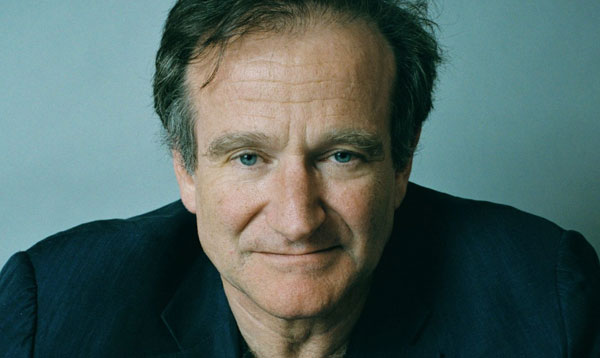
Death wish
This year has particularly been bad for Hollywood and the world of entertainment at large. The effervescent Robin Williams hung himself from the ceiling of his own house while Oscar-winning actor Philip Seymour Hoffman took an overdose of drugs..jpg)
In Bollywood, Jiah Khan, the upcoming actress hung herself leaving behind a six-page suicide note blaming her broken love affair with an actor’s son.
The history of entertainment industry is replete with many such instances. Jim Morrison, one of the most iconic and influential musicians in the history of rock music, died at the young age of 27. He was ranked 47th on Rolling Stone magazine’ s list of the ‘100 Greatest Singers of All time’. He reportedly died of a heroin overdose But since no autopsy was performed, the exact cause of his death remains disputed.
Marilyn Monroe, the greatest sex icon ever was found dead in the bedroom of her home. Her death was certified as due to “acute barbiturate poisoning” which the Los Angeles County Coroner’s office listed as “probable suicide.” There were whispers that it was not suicide but murder as she was sexually involved with members of a powerful family in America but it was never proved.
Back home in India too suicides have taken away quite a few talented people from this world . Think of Guru Dutt, creator of all-time greats like Pyasa, Kagaz ki Phool etc. dying of an overdose of sleeping pills. Then there was Silk Smitha, the sex siren from South India who took her way out when success and love relationship slowly slipped out of her hands. Her tragic life story was turned into the Bollywood blockbuster The Dirty Picture..
Parveen Babi, frustrated over relationships that broke up, disappeared from films to surface in the media after many years, having gained a lot of weight, living alone in a Mumbai apartment. She reportedly died of overdose of sleeping pills and alcohol as per the post mortem report. For 72 hours her body lay undiscovered. Young actress Divya Bharati’s death resulting from jumping off the balcony of a high-rise apartment is also shrouded in mystery because she was drunk at the ime and had had a tiff with her producer boyfriend.
The largest number of suicides is ascribed to reasons like poverty, starvation, loss of shelter and property, prolonged unemployment, severe financial constraints, persistent physical violence, and ailments demanding expensive treatment and of course, failed love affairs..jpg)
But why do people who have tasted glamour and fame take their own lives? Many of them perhaps cannot accept that they are not in demand anymore. Marilyn Monroe was cut out by MGM at a time when she needed the banner desperately despite having a successful innings with the studio. She lived alone in a spacious home after several failed marriages. She was addicted to barbiturates too. Her loneliness, her inability to hold on to her relationships all must have conspired to make a celebrated and beautiful woman like her to take an overdose.
Jia Khan had failed to revive her failing career in films after a grand celluloid partnership with Amitabh Bachchan followed by a stellar role in an Amir Khan film.
Williams had been struggling with drug abuse and alcoholism and often went into rehab but the cure was temporary. Same was the case with Hoffman. Guru Dutt who suffered from chronic insomnia, had become an alcoholic and was estranged from his wife and children. His alleged affair with Waheeda Rehman had broken up too.
Manmohan Desai, one of the most successful filmmakers of the 1970s who is said to be linked to the coining of the term masala movies, committed suicide by jumping off the terrace of his building in Mumbai in 1994. The reason of his death is still unknown as he did not leave any suicide note behind. Many say he could not bear the chronic pain he suffered from.
Edwin Shneidman, co-founder of the Los Angeles Suicide Prevention Centre points out four common factors for causing suicidal tendencies: the first is inimicality, hostility against oneself. The second is perturbation, a state of extreme anxiety, with the feeling of being closed in. The third is constriction, with the person’s perceptions narrowing into a tunnel vision where the mind focuses only on one unendurable emotion. The last is cessation, death as the only way out. Most of these suicides fit into either of these descriptions, thus blurring beyond recognition, all attempts to identify and focus on specific causes..jpg)
Why do the media, family, friends and people in the industry try persistently to cover up these suicides either as ‘murder’, or, due to ‘unknown causes’ or a drug overdose that might have been accidental? Perhaps this is to respect the privacy and uphold the dignity of a famous person who has contributed greatly to his/her field of work. But people are often aware of the problems these celebrities were facing before they took their lives.
Emile Durkheim, the French social psychologist, theorized suicide into three classes – egoistic suicide, altruistic suicide and anomic suicide.
It is difficult to judge suicide by these classifications today because the causes overlap and the lines get blurred. But the rich and the famous suicides could be in the line of anomic suicides because their success and image overtake their persona and to accept anything less than success, or loneliness become too much to bear for some of them.
Support Our Journalism
We cannot do without you.. your contribution supports unbiased journalism
IBNS is not driven by any ism- not wokeism, not racism, not skewed secularism, not hyper right-wing or left liberal ideals, nor by any hardline religious beliefs or hyper nationalism. We want to serve you good old objective news, as they are. We do not judge or preach. We let people decide for themselves. We only try to present factual and well-sourced news.







